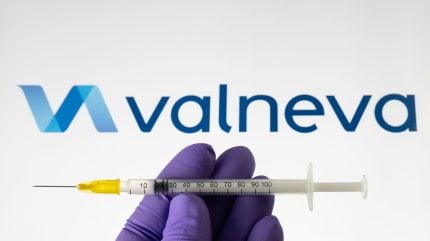
Valneva and Pfizer have reported positive data from the Phase II VLA15-221 clinical trial of a second booster dose of their Lyme disease vaccine candidate, VLA15, administered one year after the initial booster.
VLA15 is an investigational multivalent protein subunit vaccine that targets the outer surface protein A (OspA) of Borrelia burgdorferi, the bacterium responsible for Lyme disease.

Discover B2B Marketing That Performs
Combine business intelligence and editorial excellence to reach engaged professionals across 36 leading media platforms.
The observer-blind, randomised, placebo-controlled study enrolled paediatric participants aged between five and 17 years, with 560 healthy individuals receiving VLA15 in two immunisation schedules or placebo.
Participants each received a 180µg dose of the vaccine, which was selected based on findings from previous Phase II studies, with booster doses administered at months 18 and 30.
According to the findings, one month after the second booster, immune responses and safety profiles were in line with those observed after the first booster.
Results also showed significant antibody responses across all six vaccine serotypes in children, adolescents and adults, with seroconversion rates of more than 90% for all OspA serotypes.

US Tariffs are shifting - will you react or anticipate?
Don’t let policy changes catch you off guard. Stay proactive with real-time data and expert analysis.
By GlobalDataGeometric Mean Titers remained comparably high one month after the first and second boosters.
Pfizer plans to file a biologics licence application (BLA) with the US Food and Drug Administration (FDA) and submit a marketing authorisation application (MAA) to the European Medicines Agency (EMA) in 2026.
Both these submissions are subject to positive Phase III trial results.
Valneva chief medical officer Juan Carlos Jaramillo said: “We are encouraged by these data, which support the potential benefit of booster doses across all examined age groups.
“Each new set of positive data brings us one step closer to potentially bringing this vaccine to both adults and children living in areas where Lyme disease is endemic.”
In 2021, Valneva and Pfizer reported positive data from the Phase II VLA15-202 trial of the VLA15 vaccine candidate.





